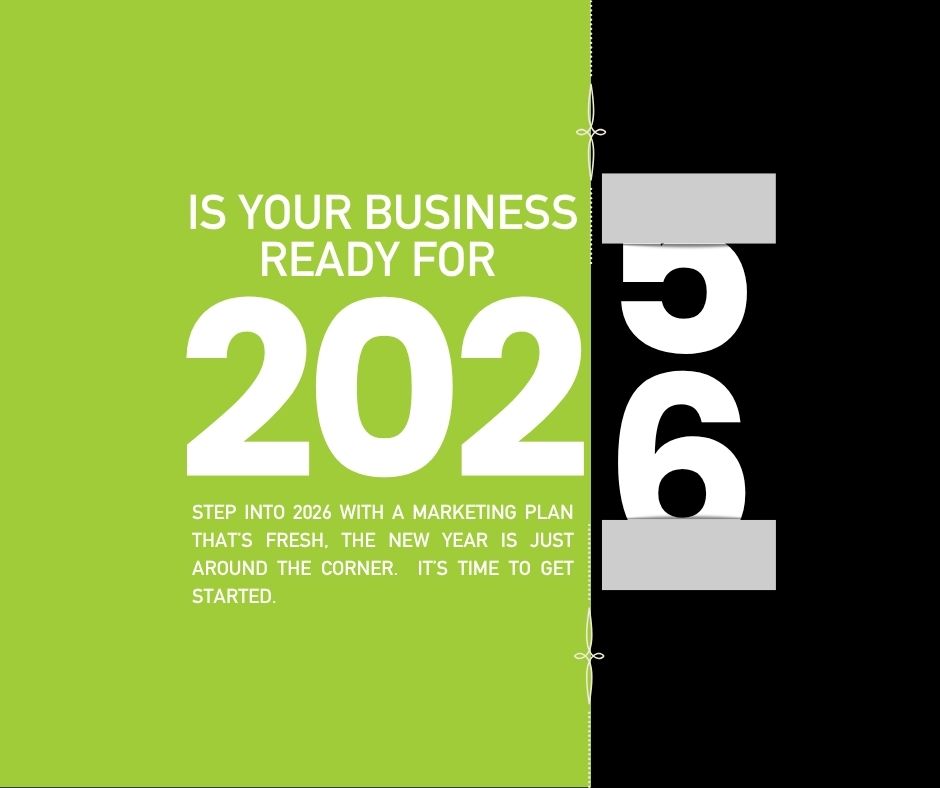The pace of marketing evolution is accelerating, and by 2026 the businesses that win will be the ones that prepare now. Small businesses once competed on brand, hustle, and relationships alone. Today those still matter, but they are not enough. Technology, consumer behavior, and buying expectations are shifting again, and small businesses who understand what is coming will be positioned to grow while others play catch-up.
Here are the top marketing trends that will shape the way small businesses attract and retain customers in 2026.
AI Will Become a Standard Business Tool, Not a Novelty
Artificial intelligence will move fully into day-to-day operations. Businesses will use AI for content creation, customer service, advertising optimization, task automation, and data reporting. Many small businesses have experimented with AI, but by 2026 the expectation will be proficiency, not curiosity. Those who continue treating AI as optional will face higher costs, slower workflows, and reduced marketing impact compared to competitors embracing automation, content acceleration, and intelligent workflows.
Adoption will not be about replacing people. It will be about equipping teams with tools that multiply output and improve decision-making. The small businesses that thrive will build repeatable AI-assisted marketing systems so they can execute faster and more consistently than their competitors.
Digital Visibility Will Depend on Multi-Channel Content
Search, social, and local discovery will continue blending. Consumers will find businesses through search engines, TikTok, YouTube, niche platforms, Google Maps, and AI search assistants. Relying solely on one platform, especially social media alone, will become increasingly risky.
Creating multi-format content for multiple platforms will become table stakes. Repurposing will be a survival skill. Small business content calendars will include short-form video, educational articles, search-indexed tools or guides, and trust-building social proof. The businesses that build systems for consistent, diversified content distribution will own visibility and authority in their category.
Local Experience Will Matter More Than Clicks
Digital marketing will continue to drive leads, but community experience will drive loyalty. Customers will expect digital convenience paired with genuine connection. Reviews, local partnerships, events, and referral systems will grow in importance. Personalized follow-up, stronger CRM usage, and consistent customer engagement will become core marketing functions.
Modern buyers want to feel known, supported, and part of something. The companies who build memorable experiences around their brand will stand out, even when larger competitors offer lower prices.
First-Party Data Will Become Essential
Tracking limitations and privacy shifts will tighten further, making first-party data a growing competitive edge. Small businesses will collect and use data responsibly through email marketing, survey feedback, website analytics, and CRM tracking.
The companies who prioritize direct communication channels will outperform those who rely solely on rented platforms. Consistent newsletters, segmented email campaigns, private communities, and customer dashboards will become expected components of a marketing ecosystem.
Websites Will Transform From Brochures to Interactive Sales Engines
Static sites will feel outdated in 2026. Websites will act as living business systems that integrate automation, on-site chat, AI-powered information delivery, scheduling, personalized content, and ongoing conversion optimization. Small businesses will invest in websites that educate, convert, and support customers around the clock. Fast, secure, optimized, and helpful digital experiences will define industry leaders.
Businesses who treat websites as “set it and forget it” assets will fall behind those who continuously update and enhance them.
Personal Brand and Leadership Voice Will Become Strategic Assets
Audiences will trust real people more than corporate messages. Leaders who show up with clarity, expertise, and authenticity will earn attention and influence. Personal content from founders, leadership interviews, and educational thought leadership will see increasing ROI. Small brands that put a face and voice to their marketing will outperform faceless competitors.
Customers buy from companies they feel connected to. Leadership presence will strengthen trust, shorten sales cycles, and improve referral generation.
Conclusion
2026 will reward businesses that combine creativity, technology, and genuine human connection. Tools will evolve, platforms will shift, and AI will accelerate workflows. But the businesses that win will always be the ones that stay aligned with their audience, communicate value clearly, and show up consistently.
Success in 2026 will not be about who spends the most. It will be about who builds the smartest systems, delivers the strongest brand experience, and creates the most trust over time.
